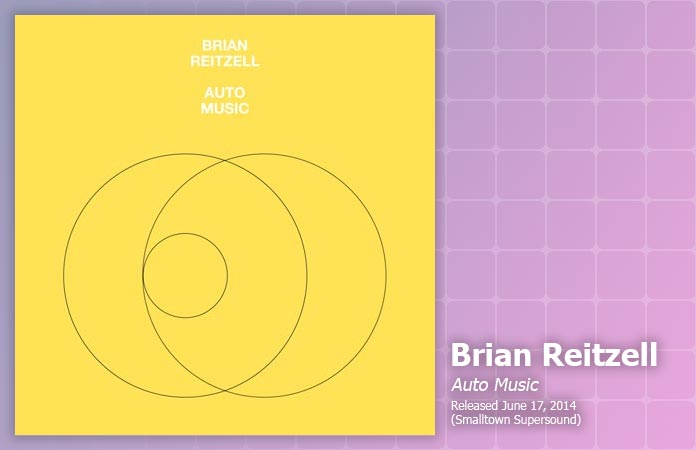Music Review: Brian Reitzell, Auto Music
Published on August 1st, 2014 in: Current Faves, Music, Music Reviews, Reviews |While Fannibals will know about Brian Reitzell because of his spectacular and spooky music for NBC’s Hannibal, he’s so much more than that. Besides serving as the music supervisor on several Sofia Coppola films (Lost In Translation, Marie Antoinette), scoring film and television (30 Days of Night, Peacock, Red Riding Hood, Friday Night Lights, Boss), and video games (Watch Dogs), Reitzell also recorded and performed with both Redd Kross and Air and was a member of terrific one-off projects like TV Eyes and Logan’s Sanctuary.
The genesis for this album was literally just Brian Reitzell messing around in the studio, exploring ideas for his soundtrack work. Even though Auto Music was about a decade in the making, it doesn’t sound either too studied or haphazardly slapped together. It’s subtle yet self-assured, even on the more bombastic tracks. Despite what you might think about instrumental albums, it’s anything but boring. Inspired by films and filmmakers themselves, it creates a perhaps unsurprising visual world.
“Last Summer” begins slowly, with feedback, and then funky drum and bass beats weave their way into the texture of the track. It’s hypnotic and danceable, with a variety of little sounds bubbling up to keep your attention; some eventually become melodies of their own. Heavier percussion floods in and most of the other music drops out, except for shards of guitar and synths. Bonus: it features both Roger Manning and Kevin Shields. “Ozu Choral” has a steady heartbeat, with ghostly noises like voices. Although this seems like it could be repetitive and tiresome, it’s actually quite engaging. The rousing “Ozu” sounds like the natural progression of the previous track, but with waves of music rising and falling, including drums and emotive guitar.
“Gaudi” is far more ambient, with intermittent piano and keyboards and a shuffiling drumbeat in the background, which drops out about halfway through, leaving moody organ tones in its wake.
“Auto Music 1” is like laser beams traveling across a barren landscape, and the introduction of drums makes the piece feel almost bouncy, especially when the groovy bass enters. It turns into a kind of psychedelic freak out before you even realize it’s happening (isn’t that how the best psychedelic freak outs happen?) While many of the tracks are quite long, “Beehive” is the shortest, with overlapping layers of organ music.
“Oskar” is another high-energy track with heavy percussion and guitar; both instruments are compelling and affecting. There’s a sinuous, buzzing synth that eventually becomes the main “vocal” melody.
“Honey Comb” makes one realize that Reitzell has a very specific voice. The piece has enticing percussion and woozy synths—both quite prominent on the album as a whole—yet made manifest in a different way than the other pieces on Auto Music.
The beginning of “Auto Music 2” gives the eerie impression of noise filtered through the blades of a fan, yet the main thrust of the song is a bittersweet, hopeful organ melody that ends the album on an uplifting note.
Auto Music is the kind of album you might put on in the background at a party until inevitably someone will stop a conversation to ask, “Excuse me, what IS this? I have to know.”
Auto Music was released on June 17 from Smalltown Supersound.

Time limit is exhausted. Please reload the CAPTCHA.